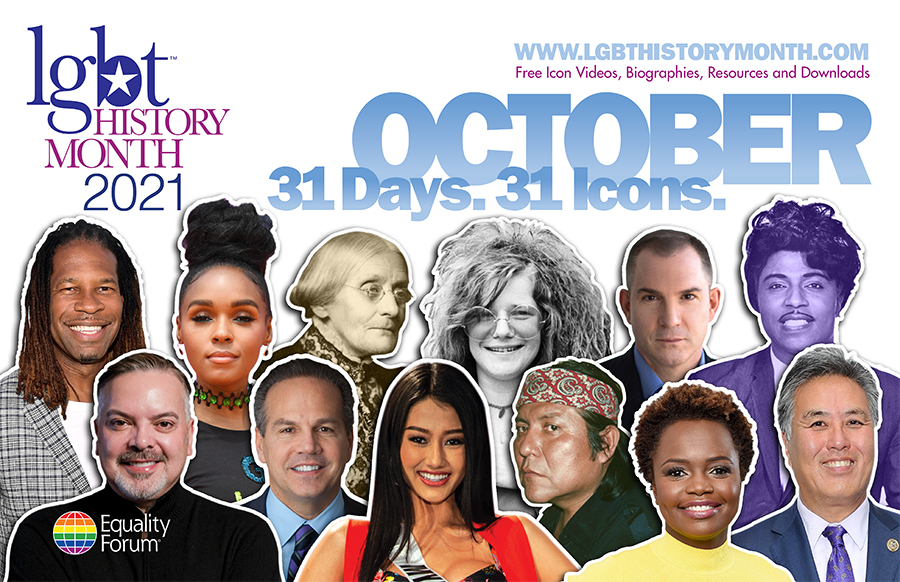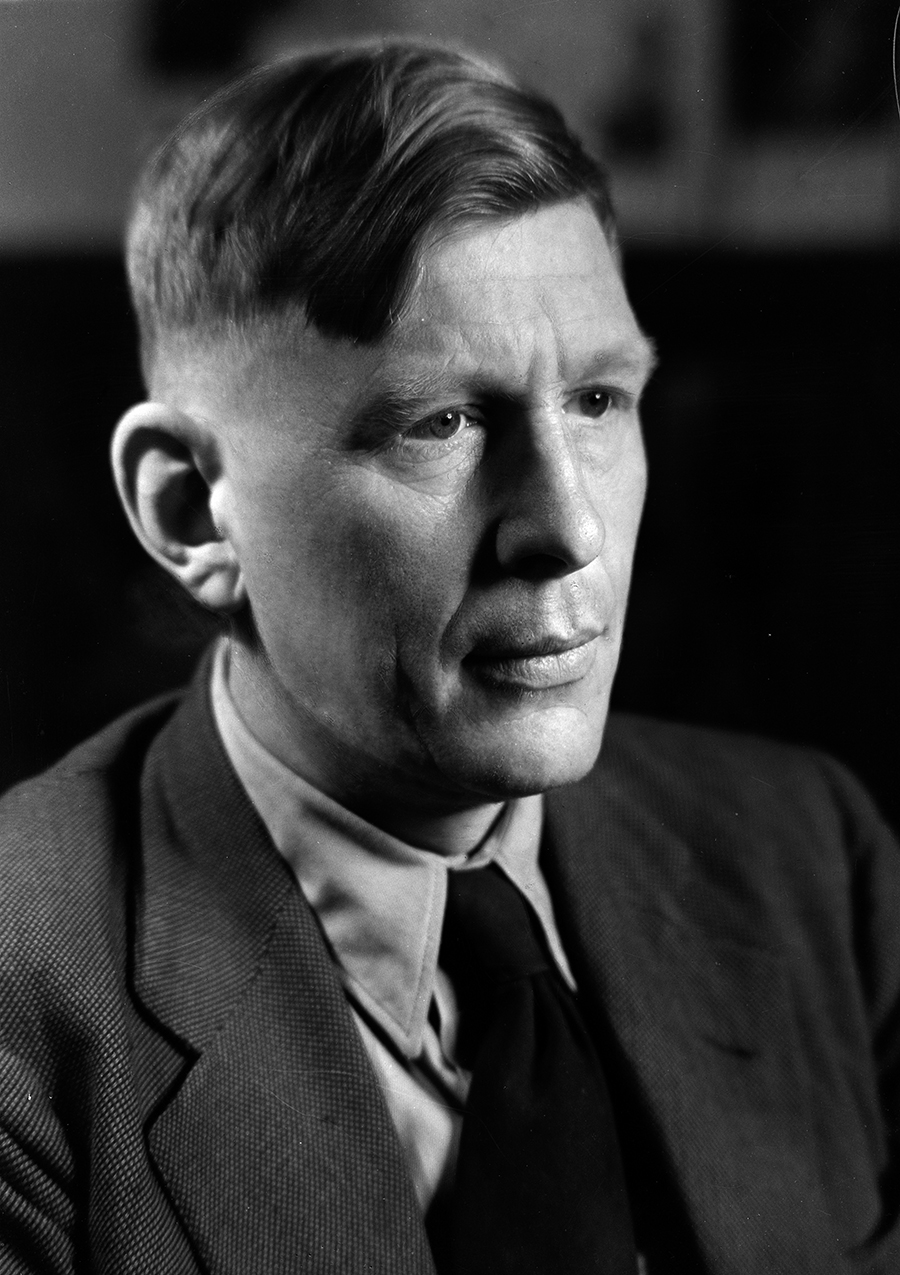Poet
b. February 21, 1907
d. September 29, 1973
“If equal affection cannot be,
Let the more loving one be me.”
Wystan Hugh (W.H.) Auden was a Pulitzer Prize-winning British-born poet who became an American citizen at age 39. Inspired by Emily Dickinson, Robert Frost and T. S. Eliot, he is considered one of the greatest poets of the 20th century.
Auden spent his childhood in Birmingham, England. His mother was a devout Anglican. His father was a renowned physician and academic. Auden’s poetry reflects both his mother’s Christian ideals and his father’s interest in folklore and mythology.
After receiving a scholarship to Oxford University, Auden studied science and engineering before switching to English. He developed a close friendship with Christopher Isherwood, a childhood acquaintance and fellow Oxford student. Auden later moved to Berlin with Isherwood, where they frequented a local gay bar and experienced the city’s “decadent homosexual subculture.”
In 1930 Faber & Faber published “Poems,” Auden’s first collection. He spent the next five years teaching English in private schools.
In 1935 Auden married Erika Mann, a lesbian writer and actress and the daughter of the novelist Thomas Mann. A marriage of convenience, the union helped Mann, who was a German Jew, obtain a British passport to escape the Nazis. The couple fled to Britain, where Auden worked as a freelance writer. He began traveling the world and writing about his experiences in Germany, Iceland and China.
Auden quickly earned recognition for his exceptional wit, fluency in virtually all forms of verse, and unique commentary on morals, love and politics. In 1937, motivated by leftist ideology, he traveled to Spain and participated the Spanish Civil War. He published his activist poem, “Spain 1937,” to raise money for Spanish medical aid.
In 1939 Auden and Isherwood moved to New York, where Auden met his lifelong love, Chester Kallman, and they began a relationship. Auden wanted monogamy with the aspiring young poet, but Kallman would not commit. Heartbroken, Auden eventually accepted it, telling Kallman, “We’re a funny pair, you and I.”
From 1942 to 1945, Auden taught at Swarthmore College. In 1946 he acquired U.S. citizenship. He and Kallman spent their summers together in Europe. Auden won the Pulitzer Prize for Poetry for “The Age of Anxiety” in 1948. He received the National Book Award for Poetry for “The Shield of Achilles” in 1956 and began lecturing at Oxford University as a professor of poetry.
Auden died unexpectedly in Vienna, Austria, in 1973. The attacks of 9/11 revived his poem, “September 1, 1939,” about the outbreak of World War II. It became one of Auden’s best-known works, even though he had grown to despise it during his lifetime.
Source: https://lgbthistorymonth.com/

















